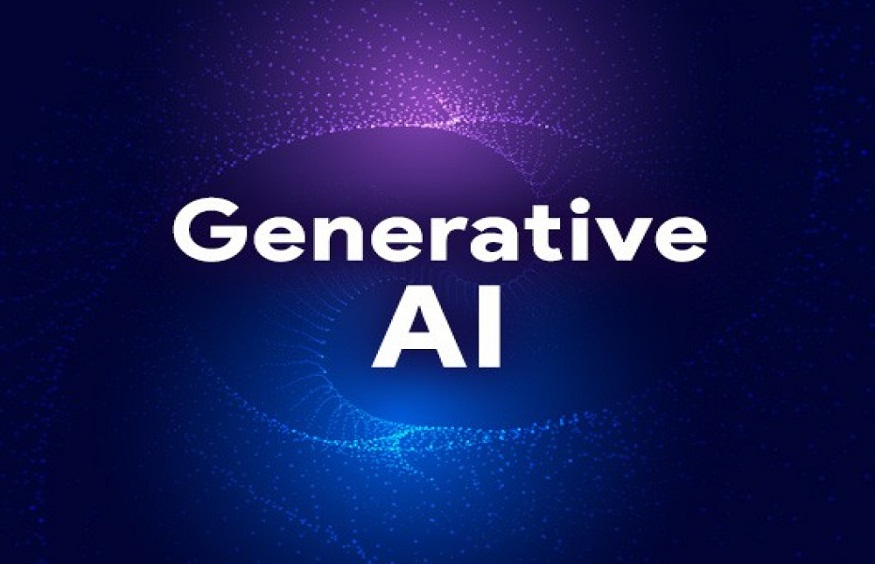How To Find The Comprehensive Generative AI Certification?

The last couple of years have witnessed a profound transformation across industries, all thanks to the rise of transformative technologies like Generative AI. This powerful tool has reshaped entire sectors, from content and software development to healthcare and customer service. The abundance of available courses may seem overwhelming, but it’s a testament to the far-reaching impact of Generative AI. Finding a comprehensive generative AI certification that balances theory, hands-on work, and ethics is a defining challenge in modern AI education. The generative AI full course is designed to inspire and motivate professionals, helping them make better decisions by focusing on the aspects that matter most to them.
Assess Goals and Prior Experience
Clarifying your objectives and skill level is the first step in the overarching course search. Are you a business leader planning to use AI technology as part of the company strategy? An aspiring software developer hoping to build AI tools? Or a beginner trying to grasp the concepts of generative AI? For starters, a well-designed certification will likely have multiple tiers allowing for a broad range of learner adaptability, with basic modules for novices and advanced material for those with deeper technical backgrounds.
What Makes a Certification Comprehensive?
Any course offering an AI certification must start with a basic introduction and provide in-depth coverage of various aspects. To begin with, foundational knowledge and basics of AI, machine learning, deep learning, generative models like GANs, VAEs, and Transformers must be covered.
Practical knowledge of the tools and platforms is equally important. For instance, understanding tools like ChatGPT, Midjourney, and APIs from OpenAI, Google, and Hugging Face is crucial. Hands-on projects, where learners can apply their skills in real-world scenarios such as image generation, language model fine-tuning, and AI API integration into web apps, are a key component of a comprehensive certification. These projects not only provide practical experience but also instill confidence in learners about their ability to apply their skills. A comprehensive certification must also cover non-technical topics like ethics, AI bias, misinformation, social and regulatory policies, and the societal impact of generative AI technologies. The course content should explore the use of generative AI in marketing, customer relations, design, business innovation, and other sectors from a cross-industry perspective.
Course Arrangement and Learning Activities
Some certifications may be self-paced and modular, while others are instructor-led and more structured. Look for recorded lectures and Q&A sessions, weekly assessments, as well as hands-on labs. Strong capstone projects are a hallmark of quality. They enable you to bring everything together to produce a meaningful synthesis, thereby demonstrating your mastery. The best courses offer theory and practice and take learners through the entire process, from concept to real-world application.
Choose Well-Known Institutions and Platforms
The issuing institution greatly impacts the credibility of the generative AI certification. Well-known universities, tech companies, or ed-tech platforms usually have more credible certifications. For example, Stanford University, DeepLearning.AI, Google Cloud, Microsoft, and IBM have issued high-quality generative AI programs. Providers like Coursera, Learnbay, edX, and Udacity usually work with universities to offer accredited programs. It is always good to go with a quality provider as they keep content current, relevant, and aligned with industry standards.
Examine The Instructors and Course Creators
A good certificate always has excellent instructors behind it. Find out if the instructors have any degrees in artificial intelligence or machine learning, or worked in leading companies on AI products. Instructors involved in AI research, patent development, or the open-source communities often bring invaluable insights that go beyond textbooks. Review their profiles, LinkedIn backgrounds, and their YouTube lectures. Courses led by recognized experts or AI practitioners from OpenAI, NVIDIA, or Hugging Face are more likely to deepen and diversify the learning experience offered.
Analyze Reviews and Alumni Career Progression
Looking at marketing content can be tempting, but checking learner testimonials is equally essential. Look for evaluations on Coursera, Reddit, LinkedIn, or Quora for a candid assessment of a course’s value proposition. Ensuring that promptly responding to inquiries is a significant part of the customer support offer is a key pillar for positive reviews. Most importantly, check what alumni are doing after obtaining the certification. Success stories from learners who have completed the course can help you understand how impactful a certification is in designing careers.
Cost, Value, and Return on Investment
There is a wide range of prices for generative AI certifications. The learning paths offered by Google Cloud and the course Elements of AI from the University of Helsinki are examples of free options. Courses in the mid-range tier, between INR 20,000 to INR 50,000, or premium certifications that charge over INR 1,00,000 and offer personalized mentorship or job support are examples of advanced courses. Certifications with professional guidance, active employment boards, and networking communities are supposed to provide better long-term value.
Evaluate the Recognition and Credibility of the Certificate
Generative AI certification should be verifiable and recognized within the industry. Currently, features such as digital badges, LinkedIn integration, and blockchain-verifiable certificates enhance recognition. Check whether accreditation is acknowledged by employers and peers within your industry. Additionally, courses from leading universities or reputable tech companies usually hold more value. Check how often the course is updated because frequent updates are indicative of responsiveness to rapid shifts in AI technologies.
Access to Community and Career Support
An often-ignored yet critical feature of any AI certification program is support after completion. Some offer career advice with interview prep, AI-specific job boards, and networking via Slack or Discord. Others run hackathons or coding challenges where community engagement and skill application is encouraged. While these are supplementary in nature, they greatly aid in learning while also providing avenues for employment and partnership, which enhances adaptability in the fast-paced world of generative AI.
Conclusion
As with any emerging technology, a thorough generative AI full course will take time and effort to search for. Such programs should combine significant recognition from a sponsoring body, project work which enables learners to apply skills through relevant tasks, and practices that simulate real-world scenarios. For newcomers seeking to develop knowledge or industry veterans wanting to deepen their skills with a specialization, an appropriate certification will advance your career in one of the fastest-growing and most sought-after fields of today.








